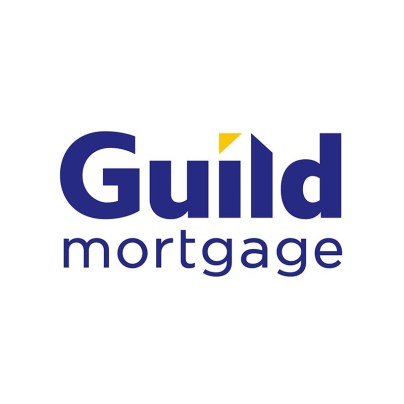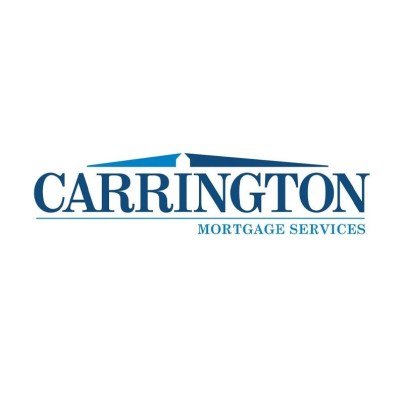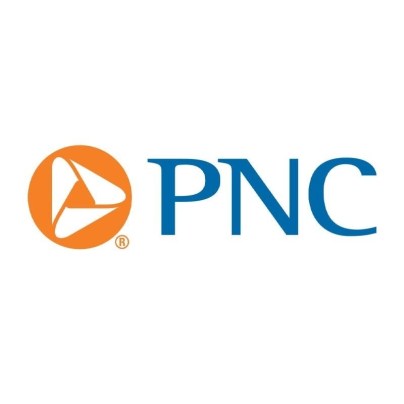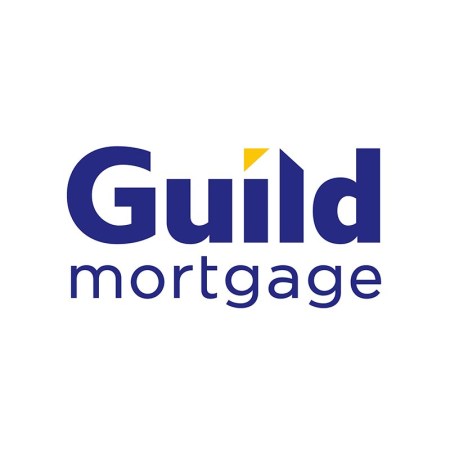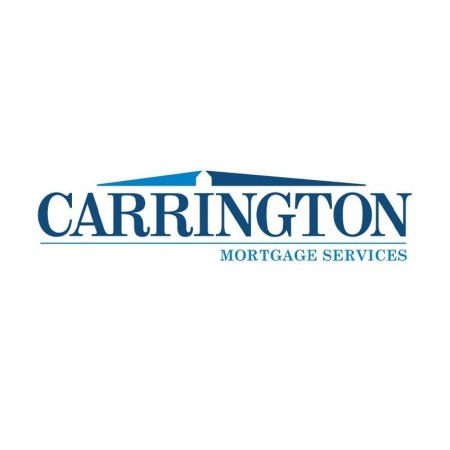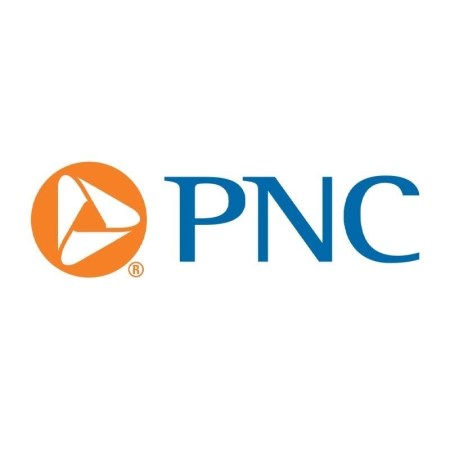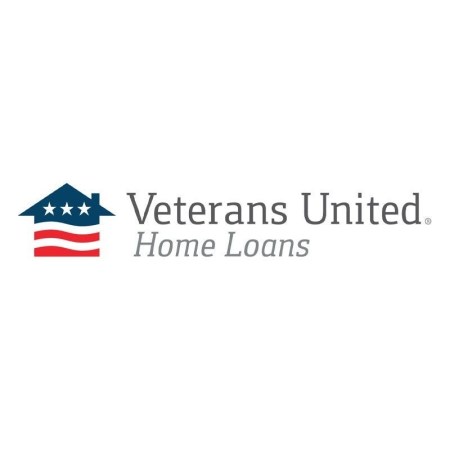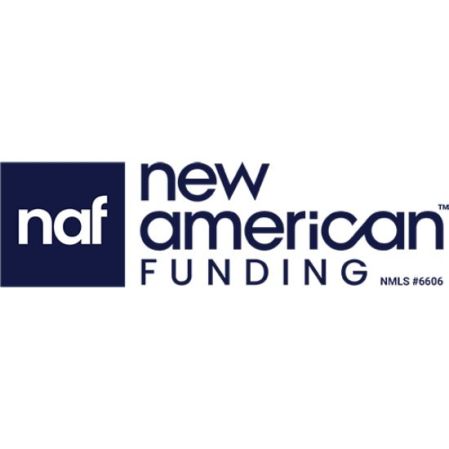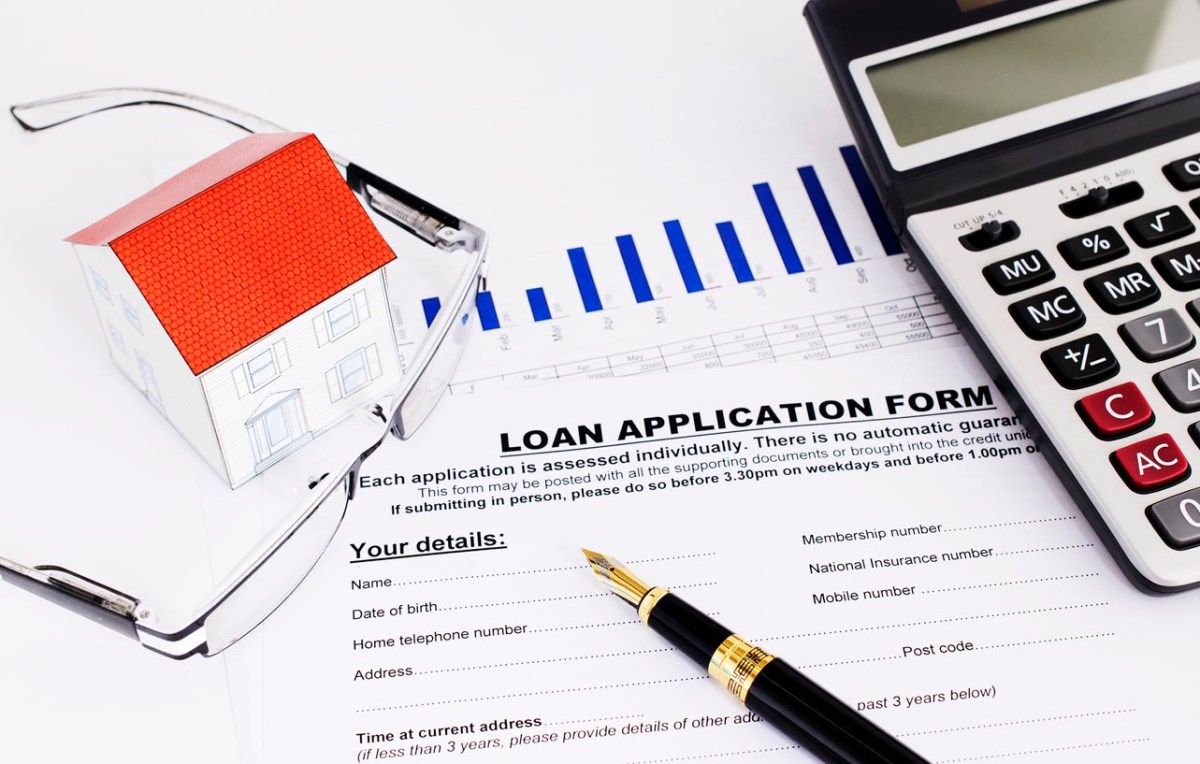
We may earn revenue from the products available on this page and participate in affiliate programs. Learn More ›
A borrower may assume that qualifying for a mortgage is virtually impossible with poor credit. Lenders may still consider extending a loan to those with a lower credit score or no credit history, though. Borrowers who work with the best mortgage lenders for bad credit may be able to take advantage of more flexible lending requirements to qualify for a mortgage, including a lower minimum credit score to buy a house. Not all mortgage companies will work with a borrower with bad credit, but there are still plenty of lenders available that offer loan options for those with lower credit scores. With this in mind, it’s a smart idea for borrowers to compare what each lender can offer to understand what options are indeed available.
- BEST OVERALL: Guild Mortgage
- RUNNER-UP: Carrington Mortgage Services
- BEST CLOSING COSTS: PNC Bank
- BEST FOR VA LOANS: Veterans United
- ALSO CONSIDER: New American Funding

What to Consider When Choosing One of the Best Mortgage Lenders for Bad Credit
Mortgage companies are like any other business in that they might specialize in a particular area within their industry. While some lenders specialize in the types of home loans they provide—VA loans, for instance—others may focus on working with certain customers, such as those with bad credit or financial struggles. Lenders that specialize in mortgage loans for bad credit may offer financing alternatives to conventional mortgages or have access to loan options that other lenders may not offer. Before a home buyer chooses a specific lender, though, it’s helpful to carefully weigh a few important factors to discover the mortgage lender that’s the best option for their financial circumstances.
Coverage Area
Coverage area is one of the basic, essential points of consideration when home buyers are choosing a mortgage lender. It simply refers to the availability of a mortgage based on the location of the property. Not all mortgage companies will be able to underwrite loans in every state, so it’s important to confirm a particular lender and mortgage product is available in a specific area. Checking a mortgage lender’s service area up front can save time and effort, which can prevent a borrower from having to find another mortgage company when they are ready to apply for a mortgage.
Eligibility Requirements
Buying a house with bad credit means borrowers will need to find lenders with more flexible eligibility requirements. Even with bad-credit mortgage loans, guaranteed approval is not a given. Home buyers must meet certain eligibility requirements when applying for a mortgage, and these standards can vary from lender to lender. Mortgage companies weigh multiple factors for approval, and the borrower’s credit score is only one of those considerations. The down payment amount and the debt-to-income (DTI) ratio (which is simply how much gross monthly income the borrower has versus their monthly debt obligations) are two other major factors.
Since exact requirements do vary from one lender to another, someone with less-than-ideal credit will need to discuss eligibility criteria up front with a lender so they can understand the qualifications needed. Another important point to note is that while some government-backed loans may seem tailor-made for borrowers with bad credit, mortgage lenders may set their own eligibility requirements. For instance, government guidelines set a minimum credit score of 580 for FHA loans, but lenders offering FHA loans may determine that a borrower needs a higher credit score to qualify for this type of financing, given their entire financial situation.
Loan Types
There are multiple loan types available, although a borrower with bad credit may not qualify for certain ones. The best mortgage lenders may offer several loan options, including:
- Conventional loans: A conventional loan is not backed by the government, which means the requirements are typically much more stringent. These loans offer either fixed rates, which means the interest rate never changes during the life of the loan, or variable rates, which means the interest rate fluctuates based on market conditions.
- FHA loans: While FHA loans are issued by private lenders, they’re regulated by the Federal Housing Administration (FHA) and offer more flexible eligibility requirements compared with a conventional loan. Borrowers with a lower credit score may qualify for an FHA loan.
- VA loans: The U.S. Department of Veterans Affairs (VA) doesn’t lend the money directly, but it does back financing for eligible service members. VA loans can offer competitive interest rates, lower down payment requirements, and lower DTI requirements. Some lenders may have more flexible eligibility standards regarding credit scores as well.
- USDA loans: Like FHA and VA loans, USDA loans are guaranteed by the federal government—in this case, backed by the U.S. Department of Agriculture. USDA loans are only available to eligible borrowers living in designated rural areas, but they offer several perks to those who qualify. For instance, there is no down payment requirement to meet, and even those who put forward a low down payment will not need to pay private mortgage insurance. Mortgage insurance protects the lender in the event the borrower defaults on their loan and is often attached to mortgages when borrowers make a down payment less than 20 percent of the purchase price. As such, those looking for first-time home buyer loans with bad credit and zero down payment options may find USDA loans to be very appealing.
Loan Terms
A loan term is simply the length of the mortgage and the amount of time a borrower has to repay the loan. The loan term significantly impacts not only the monthly payment for the borrower but also the amount of interest paid over the life of the loan. The longer the loan term, the more interest the borrower pays—both because longer loans typically have higher mortgage rates and because the loan will accumulate more interest over a longer period of time. While many payment-term options exist, the most common are 30- and 15-year terms.
An adjustable rate mortgage, or ARM, can make the loan term more complicated. An ARM means a loan starts with an initial fixed-rate term before adjusting interest rates (at set intervals) based on market conditions. For example, a 5/1 ARM means the loan will have a fixed rate for the first 5 years, then the rate will adjust yearly. Typically this can last for 30 years, but there are other term lengths available. Mortgage companies may offer ARM options for both conventional and government-backed loans.
Mortgage Rate
The mortgage rate refers to the interest paid in exchange for borrowing money from a lender. In addition to impacting the total cost of a loan, a higher interest rate will lead to higher monthly payments. A borrower with bad credit is unlikely to qualify for a good mortgage rate due to their credit history. That being said, some lenders may offer lower mortgage rates for bad credit.
When getting a mortgage with bad credit, borrowers may be able to lower their interest rates by putting more money forward as a down payment, as this is another key factor in determining mortgage rates. The interest rate can also be affected by the loan term, with shorter mortgage terms typically having more competitive interest rates. However, a shorter loan term will lead to higher monthly payments since the loan principal will be divided into fewer installments. With these different factors to consider, it’s a good idea to shop around and compare options to get the best mortgage rate.
Annual Percentage Rate
Annual percentage rate, or APR, represents the entire cost of a loan and is expressed as a percentage. Not only does APR account for the loan’s interest rate but it also factors in fees, mortgage insurance, closing costs, and mortgage points. As such, it’s the most accurate reflection of the total cost of a loan, and it’s one of the most important factors borrowers will want to consider when comparing lenders. For instance, FHA loans typically have lower interest rates compared with conventional fixed-rate mortgages with the same loan terms. However, because FHA loans always have mortgage insurance, their APR tends to be higher. Taking into account all costs that go into a loan, borrowers may wind up paying more for an FHA loan even though it has a lower interest rate.
Average Closing Costs
When comparing mortgage companies for bad credit, it’s a good idea for borrowers to look closely at the closing costs on a loan. What are closing costs? They refer to the up-front expenses borrowers are responsible for paying when their loan is funded—expenses that can add up to thousands of dollars. Closing costs can significantly impact a borrower’s home-buying budget, and while some expenses can be rolled into the loan itself, the borrower must be prepared to pay certain fees at the closing table.
Closing costs typically include expenses such as attorney fees (if applicable), title insurance, initial homeowners insurance premiums, property taxes, appraisal fees, and loan origination fees, plus possibly others. Sellers usually pay for real estate agent fees at closing, but the buyer often has a greater number of closing costs they’re responsible for paying. While some of these costs will be independent of the mortgage company—homeowners insurance premiums and property tax payments, for instance—others may vary depending on the lender. Some lenders may assess higher origination fees or be less diligent about finding affordable appraisers or title insurance companies. Checking the average closing costs for each lender can help borrowers anticipate their immediate financial obligations when the time comes to close on their mortgage.
Prequalification Process
The prequalification process can be a vital part of obtaining a loan, especially for someone with a low credit score. Home loans may not be available through all mortgage companies based on a borrower’s financial situation, so it’s good to get prequalified before hunting for a new home. Borrowers may confuse prequalification and preapplication, but they are actually separate steps in the home-buying process. Prequalification is solely based on information provided by the prospective borrower. This means there’s no credit check or documentation required, and it can give buyers a better understanding of how much home they can afford and what they might qualify for during the loan approval process. While it doesn’t guarantee loan approval, prequalification does give the borrower a realistic idea of the loan amount they might qualify for, so they can set a more realistic price range for homes to consider. Preapplication, meanwhile, involves a credit check and typically requires a cursory review of the borrower’s finances to confirm that they will likely qualify for a home loan.
Application Process
Home buyers may only start thinking about applying for a loan when they have a specific property in mind to purchase and perhaps even have a contingent contract in place. The full application process can take place online or through an app, depending on the lender, but some borrowers may prefer to work more closely with a loan officer, especially if they have bad credit or other issues that might affect their loan eligibility. Regardless of how a borrower applies for a loan, they will be required to submit multiple documents to start the underwriting process. Documents needed for the application process typically include bank statements, tax returns, pay stubs, and any other documentation related to their financial assets.
Finding a lender that can give borrowers the support they need when applying for a mortgage can be key, particularly for those who are trying to qualify for financing with poor credit. For instance, they may feel more comfortable going to the office of a local mortgage broker to discuss their financial situation or any issues they may have meeting documentation requirements, but not all lenders have physical branches. It’s worth noting that lenders will always run a credit report during the application process. Borrowers looking for a guaranteed mortgage with no credit check may need to consider other financing options.
Mortgage Points
Mortgage points are often referred to as discount points, and they allow the borrower a chance to lower their interest rate by “buying down the rate.” The way it works is borrowers pay a lump sum up front in exchange for a slightly lower interest rate. While the up-front cost can be significant—one mortgage point often costs 1 percent of the total loan amount—if a buyer plans on staying in the property for many years, then they can end up saving thousands of dollars in interest. Not all lenders offer this option, and it may not be worth it to budget-minded borrowers who are trying to minimize their initial costs. However, mortgage points can help home buyers save on the total cost of their loan.
Our Top Picks
The best mortgage lenders for bad credit can offer borrowers a chance at homeownership, even when they might have less-than-stellar credit. Not only do these top picks offer multiple loan types, but these lenders may also work with borrowers with lower credit scores.
Best Overall
Guild Mortgage
Why It Made the Cut:
Guild Mortgage offers a wide variety of loan types—in particular, a unique mortgage program for first-time buyers who do not have a traditional credit score.
A borrower who doesn’t have a credit score or any credit history yet may consider what Guild Mortgage has to offer. The lender is available throughout the U.S. (excluding New York) and offers multiple loan programs. Most notably, the lender will work with someone who doesn’t have a traditional credit score—because they’ve never opened a credit account or taken on loan debt—but will consider rent and utility payment history instead.
Other notable features include a 1 percent down payment mortgage program for eligible borrowers, which can be a lifeline to first-time home buyers or other budget-minded borrowers. While the lender’s current mortgage rates aren’t listed, qualifying borrowers may be able to reduce their interest rate thanks to Guild Mortgage’s “Payment Advantage” program, which lowers the mortgage rate by 1 percentage point for the first year of the loan term. Borrowers who take out an FHA loan may also qualify for special financing to help pay for energy-efficient upgrades to their new home.
Specs
- Coverage area: 49 states and Washington, D.C. (unavailable in New York)
- Loan types: Fixed rate, ARM, FHA, jumbo, VA loans, USDA loans, medical professional
- Loan terms: 15 or 30 years
- Application process: Online, phone, agent
- NMLS unique identifier: 3274
Pros
- Mortgage program for first-time buyers with no traditional credit score
- 1 percent down payment mortgage program
- 1 percent rate reduction for first year of conventional mortgages
- Energy-efficient home upgrades available through FHA financing
Cons
- Current mortgage rates not available
Runner-Up
Carrington Mortgage Services
Why It Made the Cut:
Carrington Mortgage Services works with borrowers with low credit scores who apply for FHA and VA loans as well as individuals with a recent bankruptcy or foreclosure.
Carrington Mortgage Services may offer flexible loan requirements, depending on the type of financing that a borrower applies for. The lender will consider applicants with at least a 500 credit score for FHA or VA loans, which is a very low minimum requirement even for government-backed mortgages. Carrington Mortgage Services also offers specialized loans with more flexible eligibility conditions, paving the way to homeownership for someone with a recent bankruptcy, foreclosure, or short sale.
Although the lender doesn’t currently offer an online application process, borrowers can work with Carrington Mortgage Services for approval over the phone or through an agent. Home buyers considering their loan options can also go to the lender’s site to see a detailed amortization schedule for their specific loan terms. Having this information available can be very helpful, as borrowers will know exactly how much interest they’ll pay and what the expected monthly payment will be with different loan options.
Specs
- Coverage area: 48 states and Washington, D.C. (unavailable in Massachusetts and North Dakota)
- Loan types: Fixed rate, ARM, FHA, VA loans, USDA loans
- Loan terms: 10 to 30 years
- Application process: Phone, agent
- NMLS unique identifier: 2600
Pros
- Low 500 credit score requirement on FHA and VA loans
- Financing available for borrowers with recent bankruptcies or foreclosures
- Detailed amortization schedules for customer-selected loan terms
Cons
- No online application option
Best Closing Costs
PNC Bank
Why It Made the Cut:
PNC Bank is a large national bank with coverage across the U.S., offering a specialized loan option with a low down payment requirement—but without the burdensome mortgage insurance.
PNC Bank offers a wide range of loan types, but the PNC Community Loan may be of special interest to borrowers with bad credit or tight finances. This mortgage can serve as an alternative to FHA loans, except it only requires a 3 percent down payment and doesn’t charge private mortgage insurance (PMI). This option could save borrowers money both up front, thanks to the lower down payment requirements, and down the road because they don’t need to pay mortgage insurance.
While the site’s mortgage calculator doesn’t provide the exact cost of what someone might pay if they have a bad credit score, there is a detailed home affordability calculator for potential borrowers to determine how much they’ll be able to spend on a new house. Once users have that information, they can then find homes in their budget through the integrated real estate platform. Additionally, qualifying borrowers may be eligible for a grant up to $5,000 to put toward their closing costs, significantly reducing the up-front costs necessary when taking out a mortgage.
Specs
- Coverage area: 50 states and Washington, D.C.
- Loan types: Fixed rate, ARM, FHA, VA loans, USDA loans, medical professional
- Loan terms: 15 or 30 years on fixed-rate loans; 5, 7, or 10 years on ARM loans
- Application process: Online, phone, agent
- NMLS unique identifier: 446303
Pros
- Low 3 percent down payment option with no PMI
- Closing cost grant of up to $5,000 available for qualifying borrowers
- User-friendly and details-driven home affordability calculator and real estate platform
Cons
- Mortgage rate calculator does not account for low credit scores
Best for VA Loans
Veterans United
Why It Made the Cut:
Veterans United focuses exclusively on the intricacies of a VA loan and also works with borrowers to improve overall financial literacy and personal finances.
Veterans United only offers VA loans, and because of this specialty, it’s prepared to handle the additional paperwork and requirements associated with using a VA loan. Civilian home buyers won’t be able to work with this lender, nor are there FHA or USDA loans available through them, but Veterans United is available across the U.S., including Washington D.C. Service members may feel more comfortable working with a lender that specializes in the type of financing they require and can help them navigate the intricacies of financing a home with a VA loan.
Veterans United even offers a free online course to help borrowers understand the entire process of buying a home with a VA loan from start to finish, which can be valuable as a borrower prepares for homeownership. It also offers free credit consulting to service members with low or poor credit to help them improve their credit and qualify for a mortgage—as well as improve their overall financial situation.
Specs
- Coverage area: 50 states and Washington, D.C.
- Loan types: VA loans
- Loan terms: 15 to 30 years
- Application process: Online, phone
- NMLS unique identifier: 1907
Pros
- Specialty in VA loans
- Free credit consulting services
- Extensive and informative online VA home-buying course
Cons
- Financing unavailable for civilian home buyers
- FHA and USDA mortgages unavailable
Also Consider
New American Funding
Why It Made the Cut:
New American Funding offers competitive rates on FHA home loans, which typically have less stringent qualification requirements. Borrowers have a wide range of loan term options to choose from too.
With its wide assortment of loan options, New American Funding is another mortgage lender worth considering for borrowers with poor credit. The lender offers unique mortgage products for a more specialized approach—in particular, the I CAN Mortgage program gives borrowers the opportunity to choose a loan term ranging anywhere from 8 to 30 years. By taking advantage of this feature, borrowers can precisely select a loan term that perfectly balances their cost considerations with their desire to pay off their mortgage as quickly as possible.
While the company’s mortgage rate tool can be a little confusing to work with and the lender does have a somewhat online prequalification process, New American Funding can offer competitive rates on FHA loans that might appeal to home buyers with bad credit. This may indicate that even those with low credit scores can get a good deal on an FHA loan.
Specs
- Coverage Area: 48 states and Washington, D.C. (unavailable in Hawaii and New York)
- Loan Types: Fixed rate, ARM, FHA, jumbo, VA loans, USDA loans
- Loan Terms: 8 to 30 years
- Application Process: Online, phone
- NMLS Unique Identifier: 6606
Pros
- Relatively low rates on FHA home loans
- Customizable loan terms from 8 to 30 years
Cons
- Somewhat misleading mortgage rate tool
- Slow online prequalification process
Our Verdict
Guild Mortgage is our pick for Best Overall, thanks to its low down payment option and commitment to working with first-time home buyers with no credit history or traditional credit score. Carrington Mortgage Services is our Runner-Up choice because of its lower credit score requirements for FHA loans and willingness to work with borrowers who have recently experienced bankruptcy or foreclosure.
How We Chose the Best Mortgage Lenders for Bad Credit
We evaluated multiple companies before choosing the best mortgage lenders for bad credit. In addition to considering the service area and loan options available with each one, we looked at those offering more flexible credit score requirements on mortgages such as FHA, VA, and USDA loans. Where available, we also reviewed specialized loan products offering lower credit score requirements and lenders willing to work with borrowers who have poor credit or no credit score at all. Loan terms—the length of the loan, in particular—and application and prequalification processes were also considered with our rankings, plus additional perks such as closing cost grants or interest rate reductions that may be available to borrowers.
Before You Choose One of the Best Mortgage Lenders for Bad Credit
Before selecting a mortgage lender, borrowers can benefit from evaluating their financial situation beforehand and ensuring their personal budget can handle the true cost of homeownership. Owning a home comes with numerous expenses—not simply the monthly mortgage payment. It’s critical to factor in all expenses, including homeowners association dues, utility bills, and other home-related obligations.
While the lenders included in this list may be a great fit for many borrowers, they might not necessarily work for all buyers. This makes shopping around and comparing multiple lenders a key part of the selection process, especially for borrowers with bad credit. Comparing the loan options, mortgage rates, down payment requirements, and other essential factors can help borrowers determine the best lender for their financial situation.
Prospective home buyers with bad credit may not always be in a financial position to qualify for a mortgage or afford a new house—but that doesn’t mean they should give up on their dream of homeownership entirely. Rod Griffin, senior director of consumer education and advocacy at Experian, advises those who may not qualify for a conventional mortgage to take some time to boost their credit score, even if it means putting their home-buying plans on hold. “If you have a low credit score, working to improve your score is one of the best things you can do to improve your chances of being approved for a mortgage or securing more favorable rates and terms,” he says. “While it may take more time than you’d like, improving your credit standing and ensuring your finances are in order to secure a conventional mortgage could help save you money in the long run.”
Cost of Opting for One of the Best Mortgage Lenders for Bad Credit
A mortgage for anyone—whether the borrower has bad credit or excellent credit—can come with a wide range of cost considerations. The loan principal, interest rate, and loan term are among the key factors that determine the cost of a mortgage. There are numerous other expenses that can add to the total cost of a mortgage too, including closing costs, down payment, and mortgage insurance. The closing costs, which include all the expenses due at the time of closing, such as appraisal fees, initial escrow deposits, origination fees, and more, can vary from one lender to another.
While borrowers may want to minimize their down payment, it’s worth remembering that anyone putting down less than 20 percent on a conventional mortgage may have to pay PMI each month until they have established a 20 percent equity stake in their home—and even then, it’s up to mortgage lenders to remove PMI. On average, borrowers with PMI will pay 1.25 of their total loan amount to cover their mortgage insurance costs. With that in mind, home buyers will want to avoid paying this additional expense if at all possible.
In addition, while FHA loans have much more flexible down payment requirements, borrowers will be required to pay a mortgage insurance premium (MIP) each month. Borrowers will want to keep in mind that mortgage insurance on an FHA loan cannot be removed, which means borrowers will need to refinance their home loan into a different type of loan.
The Advantages of Opting for One of the Best Mortgage Lenders for Bad Credit
Choosing one of the best mortgage lenders for bad credit offers multiple advantages to the borrower, whether they’re purchasing their first home or looking to move into a new house. Lenders often work with borrowers to find the best loan that fits their unique financial situation, and that can include those with a lower credit score. Other advantages provided by the top mortgage lenders for borrowers with poor credit include:
- Specialized loan options for borrowers with low or no credit score, as well as those who have gone through a bankruptcy or foreclosure in recent years;
- Low down payment requirements on certain loan types, allowing borrowers to qualify for a mortgage even with less money to put forward up front; and
- Cost-saving opportunities such as rate reduction programs, closing cost grants, and competitive interest rates.
FAQs
Getting a mortgage can be a complicated process, and dealing with less-than-perfect credit can add an additional layer of confusion to the mix. As such, borrowers with bad credit may have questions throughout the home-buying journey. With answers to a few of the most common concerns borrowers with bad credit have about home loans, they can better position themselves to navigate the mortgage process from start to finish.
Q. What is the lowest credit score needed for a mortgage?
Each type of loan and lender has its own minimum credit score requirements, but some lenders may approve loans for borrowers who have credit scores as low as 500. This is an exception more than the rule, though, so borrowers with poor credit will likely need to contact several mortgage companies before finding a lender that’s the right fit.
Q. What is the easiest mortgage to qualify for?
Qualifying for a home loan with bad credit or poor finances isn’t always easy. Mortgage lenders may have specialized loan options that can help, though. In particular, an FHA loan is often considered to be among the easiest mortgages to qualify for because it has low credit score and down payment requirements. Eligibility standards can vary from one lender to another, though, so it’s worth checking with multiple lenders for available financing options.
Q. Will my low credit score affect my mortgage rate?
Not only does a lower credit score decrease the chances of loan approval, but those who do get approved often end up paying higher interest rates. A higher interest rate increases the cost of a mortgage, both in terms of the monthly payment and the total interest paid over the life of the loan.
